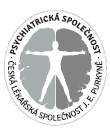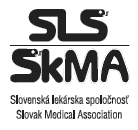Česká a slovenská psychiatrie

Časopis
Psychiatrické společnosti ČLS JEP
a Psychiatrickej spoločnosti SLS
souborný článek / review article
ZÁVISLOSTNÍ CHOVÁNÍ NA INTERNETU A JEHO LÉČBA
ADDICTIVE BEHAVIOR ON THE INTERNET AND ITS TREATMENT
Vondráčková Holcnerová P. 1, Vacek J.2, Košatecká Z. 3
Fakulta sociálních studií MU, Institut výzkumu dětí, mládeže a rodiny, Brno1
Psychiatrická klinika 1. LF UK a VFN, Praha2
Soukromé psychologické středisko, Praha 3
Psychiatrická klinika 1. LF UK a VFN, Praha2
Soukromé psychologické středisko, Praha 3
SOUHRN
Závislostní chování na internetu je nový fenomén, se kterým se v posledních několika letech stále více setkávají kliničtí psychiatři a psychologové v praxi. Lze jej definovat jako používání internetu, které s sebou přináší do života jedince psychologické, sociální, pracovní nebo školní komplikace. Tento fenomén provází v odborné veřejnosti diskuse o jeho existenci v podobě samotné nozologické jednotky či jako symptomu jiné duševní poruchy. Někteří klinikové dokonce navrhovali zařadit tento syndrom do 5. revize DSM. Text nabízí teoretický přehled této problematiky, včetně diagnostických vodítek, epidemiologie a komorbidity Dále jsou v něm představeny tři etiologické modely vzniku závislostního chování na internetu, a to model kognitivně-behaviorální, teorie deficitu sociálních dovedností a model interpersonální teorie. Pozornost je věnována i léčebným přístupům tohoto fenoménu, zejména farmakoterapii a psychoterapii. V rámci psychoterapeutických přistupuje představen kognitivně behaviorální přístup, terapie realitou a rodinná terapie. Text uzavírají dva modelové kazuistické případy z praxe.
Klíčová slova: internet, závislostní chování, informační technologie.
SUMMARY
Vondráčková Holcnerová P., Vacek J., Košatecká Z.: Addictive Behavior on the Internet and Its Treatment
Addictive behavior on the Internet is a new phenomenon in the practice of clinical psychiatrists and psychologist. It is defined as use of the Internet that creates psychological, social, school and work difficulties in a person's life. The brief academic history of addictive behavior on the Internet is accompanied by many discussions about its existence in the form of its own nosological unit or as a symptom of another mental disorder. Some professionals even suggested including it into DSM-V. This text offers theoretical overview of this topic including diagnostic guidelines, epidemiology, and co-morbidity In addition, it presents three etiological models of the onset of the addictive behavior on the Internet - cognitive behavioral model, social skills deficit theory and interpersonal model. Attention is paid to the therapeutic approaches to this phenomenon, in particular, pharmacotherapy and psychotherapy. In the context of psychotherapy interventions is introduced cognitive behavioral therapy, reality therapy approach and family therapy. In conclusion are presented two case studies.
Key words: Internet, addictive behavior, informational technology.





